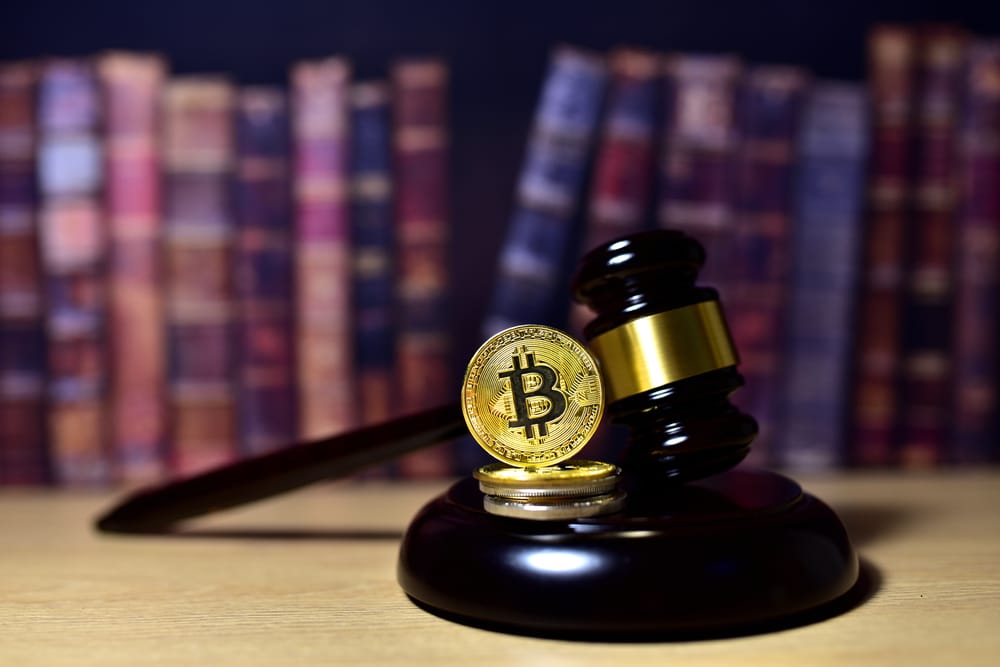
Paradigm Counsel Faults SEC for Wrongful Attempts to Police Crypto Industry
The special counsel of crypto investment firm Paradigm criticized the US Securities and Exchange Commission (SEC) for its overreach in recent purges against crypto exchanges and projects. Counsel Rodrigo Seira accuses the Gary Gensler-led SEC of overstepping its jurisdiction to charge the Bittrex crypto exchange.
Counsel Seira echoes the sentiments of critics of SEC’s regulation by enforcement. He considers the securities regulations for the wrongful pursuit of Bittrex in its unjustified attempt to police the secondary crypto markets.
SEC’s Applying Howey Test Unreasonably to Charge Crypto Exchanges
In a Monday, July 11 tweet, Seira delved into the matter days after leading Paradigm to file an amicus brief in the SEC case against Bittrex. He reiterated criticism against SEC and petitioned for the case dismissal as the regulator applied the Howey test unreasonably to make claims.
In Friday’s July 7 filing for an amicus brief, Paradigm submitted that the securities regulator overstepped its authority and jurisdiction. While the filing relates to the case against Bittrex, it borrows heavily from the criticism levied against SEC in its recent purge against crypto exchanges.
Seira Twitter threat alleges that SEC chair Gensler had earlier confessed the regulatory agency struggled with an inadequate regulatory framework. The council considers the chair’s sentiments to portray admission that the regulator lacked sufficient authority to exercise oversight of the secondary markets.
SEC Lacks Authority to Police Crypto Assets
Seira’s tweet echoes the arguments in the Friday, July 7 publication that SEC lacks authority to police crypto assets. The blog post ruled out crypto assets as not involving investment contracts. Consequently, crypto assets are excluded from the SEC’s scope.
Seira’s argument leans towards the stance adopted by Coinbase and its chief legal officer Paul Grewal. Coinbase submitted that digital assets would remain uncertain unless SEC engages in rulemaking. Grewal disputes the invitation extended by SEC to crypto exchanges to register, yet the regulator lacks the effective means to govern the execution of such a process.
SEC’s Chair Statement Revisited to Dismiss Recent Charge Against Bittrex
Seira’s critical post revisits SEC’s move on April 17 to file a complaint against crypto exchange Bittrex. The move prompted Bittrex to surrender the Florida money transmitter license on April 30. A week later, it would file for bankruptcy protection.
Seira’s criticism replicates the stance adopted by Paradigm in its support of crypto entities battling legal charges initiated by the SEC. Earlier on May 11, Paradigm petitioned Court leave to file the amicus brief to support Coinbase. The latter demanded that SEC embrace rulemaking given the apparent failure to offer clear guidance sought by digital asset firms in the US.
Paradigm’s amicus brief revisits Gensler’s pronouncements during the Congressional testimony. He testified that the SEC needed more authority to regulate the secondary markets since the exchanges involved in trading crypto assets lack a regulatory framework.
Paradigm’s counsel submitted that the law is unchanged since Gensler’s comments in 2021. Nonetheless, the SEC now miraculously discovered the authority acknowledged by the chair as missing. The filing questioned the discovery and subsequent deployment to impose retroactive penalties on several firms alleging noncompliance with such provisions.
Paradigm emphasizes that the claims levied by SEC against Bittrex and rival crypto exchanges fundamentally differ from other prior cases it initiated against the token sellers.
Invalid Utilization of Howey Test Proven by Paradigm Amicus Brief
Seira’s review of the prior cases shows SEC exercised its existing authority to regulate fundraising schemes proven under the Howey test. Nonetheless, recent cases targeting crypto exchanges portray SEC’s attempt to expand authority as the initial fundraising transactions. Primarily, it targets downstream sales of digital assets.
Paradigm submitted that SEC lacks legal ground to argue the crypto asset initially sold in the fundraising transaction embodies the investment contract. It added that the secondary market transaction cannot constitute investment contract transactions.
Paradigm counsel confirmed reviewing the previous federal appellate cases involved in the Howey test comprehensively. It indicates that no asset identified as an object in the investment contract transaction constitutes a security. Also, the subsequent transfer of such assets within the secondary market constitutes securities transactions.
The review shows that the theories advanced by SEC are entirely unprecedented. The filing indicates sufficient grounds to dismiss the SEC’s case against the crypto exchanges. Instead, Paradigm challenges SEC to join Congress to formulate crypto-specific legislation supporting innovation and safeguarding investors.




